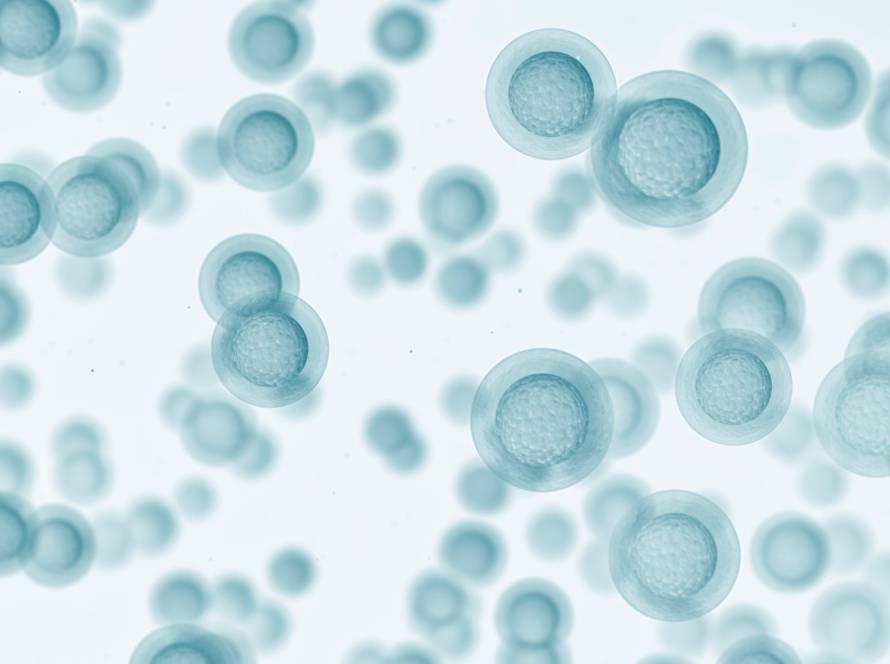The effect of serotonin on aging remains one of the most captivating areas of longevity research. People often call serotonin the “feel good” neurotransmitter, but it serves much more complex roles than mood regulation alone.
This detailed piece aims to break down a crucial question: does serotonin affect aging and what does this mean for healthy longevity? We’ll explore serotonin’s potential anti-aging effects based on recent scientific findings and get into the evidence that shows whether serotonin directly affects aging processes at the cellular level.
Can serotonin levels influence how we age?
Serotonin appears to play a meaningful role in the aging process, influencing both mental and physical health. As a key neurotransmitter, it supports mood balance, cognitive function, sleep regulation and immune activity, all of which are critical to healthy aging.
Declining serotonin levels have been linked to increased risk of depression, poor sleep and neurodegenerative diseases in older adults. Additionally, serotonin affects inflammation and gut health, two major factors in biological aging. While more research is needed, maintaining balanced serotonin levels may help support longevity and a better quality of life with age.
What is serotonin and how does it work in the body?
Serotonin (5-hydroxytryptamine or 5-HT) is a monoamine that works as both a neurotransmitter and hormone. It plays a vital role in many body processes beyond just regulating mood. This versatile signaling molecule helps control sleep, appetite and cognitive processes through its effects on multiple body systems.
Production sites: gut vs brain
The body makes about 90-95% of its serotonin in the gastrointestinal tract. The gut’s mucosal epithelium contains enterochromaffin cells that produce 90% of gut serotonin, while enteric neurons make the remaining 10%. The brain generates just 5% of the body’s total serotonin in the raphe nuclei of the brainstem.
The body needs the essential amino acid tryptophan from food to make serotonin. The process starts when tryptophan hydroxylase (the rate-limiting enzyme) converts tryptophan to 5-hydroxytryptophan (5-HTP). Then decarboxylation creates serotonin. The body uses different enzyme variants, TPH1 in the gut and TPH2 in the brain.
Functions in mood, sleep, appetite and cognition
Serotonin regulates mood, anxiety and emotional stability throughout the brain’s neural networks. The prefrontal cortex has many serotonin receptors that help control mood and thinking processes.
Serotonin teams up with dopamine to control sleep-wake cycles and helps produce melatonin, the main sleep hormone. Brain regions respond differently to serotonin, some areas become more alert while others get sleepy.
The body uses serotonin to reduce hunger and control food intake. People feel full after eating because serotonin signals satiety. Serotonin also makes digestion easier by boosting gut movement and secretion.
Learning and memory benefit from serotonin’s effects. This neurotransmitter works on receptors in the hippocampus, amygdala and cortex, brain regions that form memories. Studies show that 5-HT2A/2C or 5-HT4 receptor agonists can make learning easier when cognitive demands are high.
How serotonin interacts with other neurotransmitters
The brain’s neurochemical systems are deeply connected with serotonin. It works with noradrenergic, GABAergic, endocannabinoid and glial cell systems. These connections help explain how medications work for depression, anxiety and other neurological conditions.
Serotonin creates feelings of calm and emotional balance, while dopamine drives motivation and reward-seeking behavior. Together, they maintain balanced mood and behavior. The brain’s stress response changes when serotonin affects the release of corticotropin-releasing hormone in the hypothalamic-pituitary-adrenal axis.
The serotonin transporter (SERT) on the presynaptic neuron reabsorbs serotonin to end its activity. This process is the target for selective serotonin reuptake inhibitors (SSRIs), which treat depression by keeping more serotonin available in the synapse.
How serotonin changes with age
Research shows that serotonin levels drop as we age. This decline affects brain function and behavior in many ways. The reduction in this “feel good” neurotransmitter might explain why older adults experience changes in their mood, thinking ability and sleep patterns.
Does serotonin decrease with age?
Studies confirm that serotonin neurotransmission decreases with advancing age in species of all types. Scientists have found significant drops in serotonergic signal transmission during healthy aging. This decline seems to be preserved through evolution. Research on organisms like C. elegans reveals that serotonin levels in neurons fall to just 33% of young adult levels by day 9 of adulthood. High-performance liquid chromatography measurements confirm this decline too. 5-HT amounts drop from 103 ± 21 ng/g protein in young adults to only 31 ± 5 ng/g protein in aged organisms.
Age-related decline in serotonin receptors and transporters
Different parts of the serotonergic system decline at varying rates with age. 5-HT-1A receptors show modest drops of about 10% every decade, according to studies. 5-HT-2A receptors show much steeper declines with correlation coefficients of −0.71. 5-HT transporters show moderate reductions with age (correlation coefficient: −0.49).
The decline ranges between 1.5% and 7.0% per decade across all serotonergic targets. Serotonin transporter binding drops by 9.6% per decade in the thalamus and 10.5% per decade in the midbrain. These varying rates of decline might explain certain psychological changes in older adults.
Impact on sleep, mood and cognitive function
Age related serotonin reduction leads to various behavioral and cognitive changes. These chemical changes in the brain can make elderly people more susceptible to depression. Patients with mild cognitive impairment (MCI) show strong links between lower serotonin transporter levels and memory problems, according to research.
Scientists believe that serotonergic dysfunction causes much of Alzheimer’s disease’s behavioral aspects rather than being just a side effect. The pattern of decline, 5-HT-2A receptors dropping faster than 5-HT-1A receptors, might explain why older adults prefer emotion-focused over problem-focused coping strategies.
Sleep problems common in aging seem linked to declining serotonergic function. This shows how this neurotransmitter system affects life quality as we age.
Serotonin’s role in age-related diseases
Changes in serotonergic function with age substantially affect various neurological and psychiatric conditions. Complex links between serotonin dysregulation and disease pathology show why balanced neurotransmitter systems become crucial as people age.
Late-life depression and serotonin imbalance
Depression in older adults is different from depression in younger people, both in how it presents and its neurochemical foundation. Late-life depression has strong links to serotonergic dysfunction. Studies show that 10-20% of elderly individuals with depression show substantial cognitive dysfunction. Older adults with depression have lower serotonin transporter binding in multiple brain regions compared to those without depression.
Antidepressant response patterns reinforce the connection between serotonin and depression in aging. All the same, standard SSRI treatments don’t work as well in elderly populations. This suggests that age-related changes in serotonin receptor sensitivity might make treatment more complex.
Serotonin and Alzheimer’s disease: what the research shows
Serotonergic dysfunction has deep connections to Alzheimer’s disease pathology. Post-mortem studies show that Alzheimer’s patients have up to significant fewer serotonergic neurons in the raphe nuclei compared to age-matched controls. This reduction relates to both cognitive decline severity and behavioral symptoms.
The relationship works both ways. Serotonin depletion can speed up amyloid plaque formation, while amyloid pathology damages serotonergic neurons. Animal models show that serotonin depletion increases amyloid precursor protein expression, which could speed up disease progression.
PET imaging studies and serotonin receptor mapping
PET has transformed our understanding of serotonin’s role in aging brains. Researchers have documented major serotonergic changes that happen before cognitive decline through serotonin receptor mapping. PET studies consistently show 5-HT1A receptor binding drops by about 10% each decade. The decline is even steeper for 5-HT2A receptors at 20-30% per decade.
These imaging studies reveal that serotonergic deficits often come before noticeable cognitive changes. This suggests that serotonin system dysfunction might be an early biological marker for neurodegeneration rather than just a result of it.
Can serotonin modulation slow aging?
Scientists have found that serotonin signaling could be crucial in controlling how we age. The fascinating link between mood control and longer life has scientists excited about using serotonin-targeted treatments to slow down aging.
Serotonin anti aging potential: what we know
Scientists have made breakthrough discoveries showing how changes to serotonin signaling pathways can help organisms live longer. Studies with fruit flies showed that blocking specific serotonin receptors extended their lifespanbased on the dose given. The results were remarkable, fruit flies lived almost twice as long when scientists blocked their serotonin reward pathways, even though they ate normally. Research in C. elegans showed that substances affecting serotonin signaling helped them live longer. These effects work in part by changing how organisms notice and react to food rather than affecting how much they eat.
Supplements and SSRIs: benefits and risks
Drugs that change serotonin pathways might affect how we age, though we need more research to confirm this. Studies show certain serotonin receptor blockers help test subjects live longer. But these compounds could have side effects that make them impractical. If we have age related serotonin decline, supplements like tryptophan, 5-HTP and SAMe might help produce serotonin. We should be careful though, too much serotonin can lead to dangerous serotonin syndrome.
Lifestyle interventions that support serotonin balance
Serotonin levels drop as we age because serotonin transporters and receptors don’t work as well. Here’s what we can do to keep healthy serotonin activity:
- Brief daily sunlight exposure (10-15 minutes) boosts serotonin production;
- Outdoor exercise amplifies serotonin-boosting benefits;
- Massage therapy increases serotonin and reduces cortisol levels;
- Social connections and kind acts raise serotonin levels naturally.
Emerging therapies and future research directions
New research points to the glutamine–α-ketoglutarate (αKG) axis that arbitrates lifespan effects downstream of serotonin signaling. αKG plays a vital role where mitochondrial metabolism meets epigenetic control of aging as a TCA intermediate and cofactor of DNA/histone demethylating enzymes. Scientists are studying whether the body compensates for age-related serotonin loss by reducing serotonin transporters. This could lead to serotonin staying active longer in the synaptic cleft. The body’s natural compensation strategy might inspire new treatments.
This deep dive into serotonin’s complex relationship with aging shows that this neurotransmitter is nowhere near as simple as scientists once thought. Research has found that serotonin levels naturally decline with age and the density of receptors drops while transporter function weakens. These changes affect how older adults regulate their mood, think clearly and sleep well.
Balanced serotonin function plays a crucial role in healthy aging. While we still have much to learn about this relationship, the evidence shows without doubt that serotonin orchestrates many aspects of how we age.


